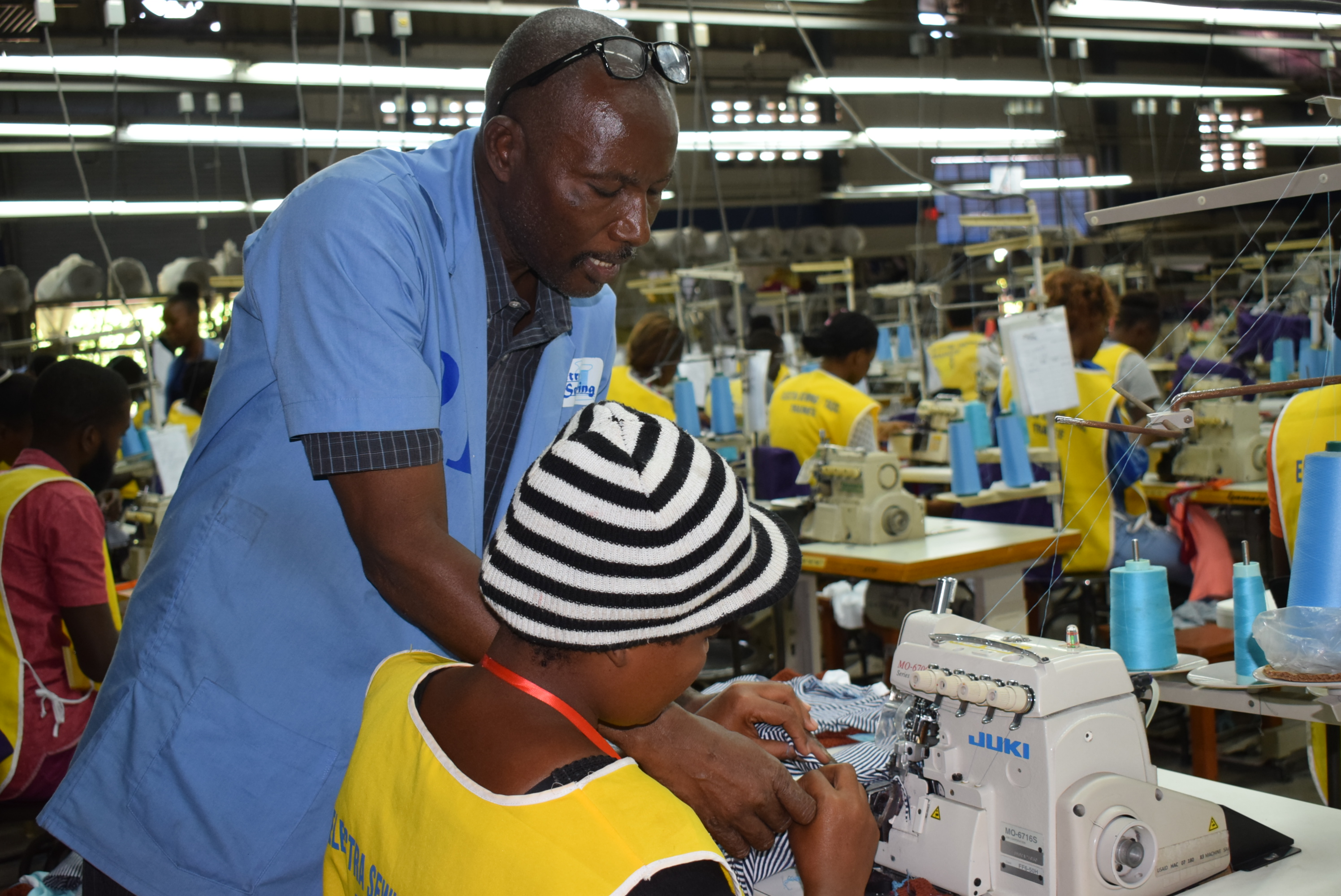The ILO supports the creation of decent and environmentally responsible jobs for disadvantaged young people in Cité Soleil, one of the poorest neighbourhoods of Port au Prince, Haiti. In Haiti, only 13% of the working age population have formal jobs and 60 % of the population is under 30. The COVID-19 pandemic further exacerbated the employment challenges in the country. Seeking to address a lack of job opportunities and environmental degradation, the ILO launched the project “Jobs creation through environmental management”.
The strategy aimed at providing jobs and incomes for young people, half of which were women, in two key sectors of the local economy: environmental management and the garment industry. Through a combination of skills development, social entrepreneurship and alliance building with municipalities, the project positively impacted hundreds of lives.
In addition to supporting the cleaning of the Flamingo channel in the municipality of Cité Soleil, the project also established an intercommunal solid waste management fund and undertook awareness-raising activities in the surrounding municipalities. ILO support also facilitated the training of young people in the collection, recycling and transformation of waste into useful and tradable products (ie. ethical craft).

Through a partnership with a responsible textile entrepreneur, the project provided tailor-made training for young people in a demand-driven programme for the apparel sector. The existing factories generate nearly 60,000 jobs, one of the few sources of formal employment in Haiti. The training programme took into account the needs of the sector and the profile of the beneficiaries with a particularly low educational background. Strong emphasis on core skills, in addition to the more conventional technical competencies, was crucial to ensure employability.

The COVID-19 pandemic, civil unrest and political instability posed challenges to the project’s implementation. Yet, a recent independent evaluation of the project (April 2021) highlighted the following achievements:
Supporting young people’s access to decent jobs and nurturing hope in a fragile environment like Cité Soleil represents a major challenge, particularly considering the active presence of armed gangs and violence as a permanent threat to their lives. Lack of decent jobs, environmental degradation, limited access to education, amongst many other deprivations, are all root causes of the poverty trap. It is an urgent need of the hour to introduce innovative approaches to attract and inspire young people into employment. The possibility of a formal job in a modern factory and the opportunity of living in a cleaner environment, even transforming waste into tradable products, are powerful means to engage young people in training and other capability-enhancing activities.
The sustainability and scalability of such interventions require long-term commitment by local leaders and change-makers. The good news is that there are many purpose-driven organizations operating at the local level that are committed to the cause. Building stronger relations amongst them, integrating their work into broader development efforts, involving local governments, the private sector and other relevant stakeholders, is indispensable and that is where international organizations like the ILO can make a difference. Promoting social justice in fragile environments requires more than good intentions, it demands risk-taking approaches, hard work and strategic alliances.
Article